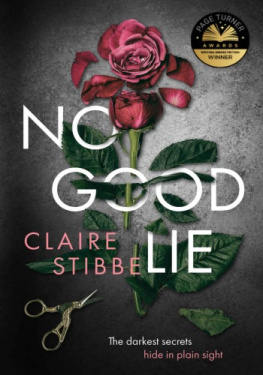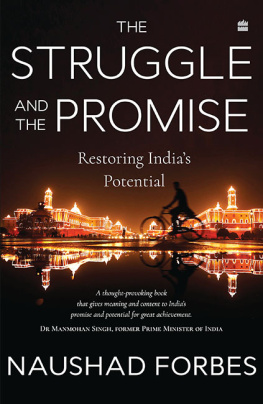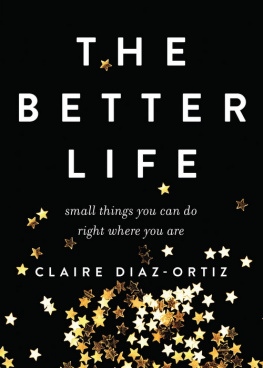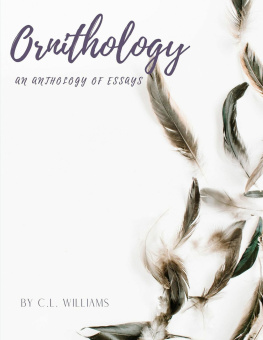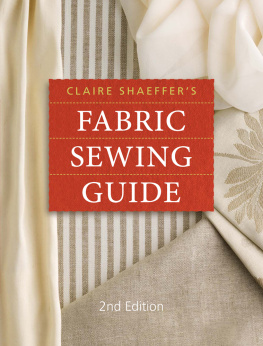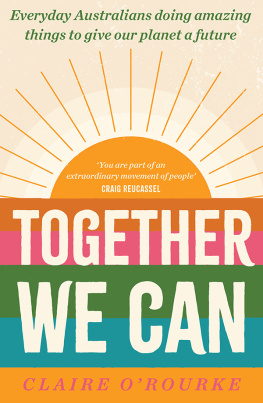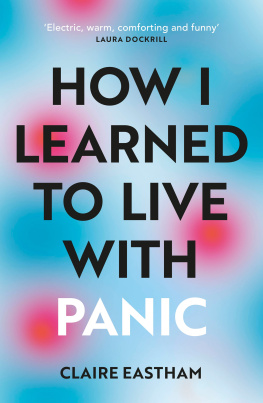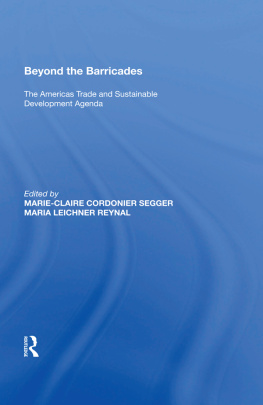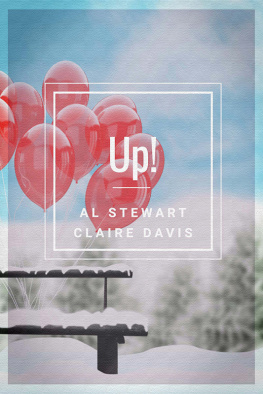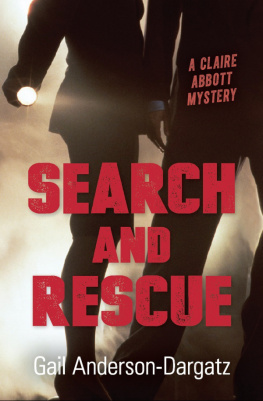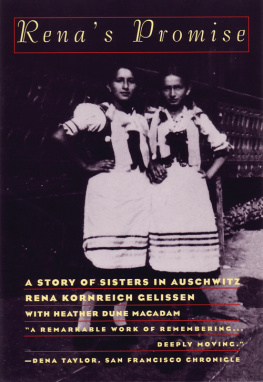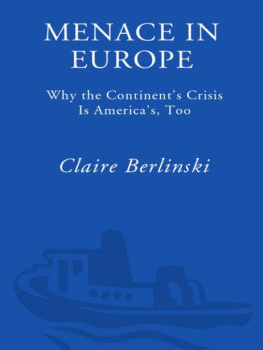www.upress.state.ms.us
The University Press of Mississippi is a member
of the Association of American University Presses.
Copyright 2014 by University Press of Mississippi
All rights reserved
Manufactured in the United States of America
First printing 2014
Library of Congress Cataloging-in-Publication Data
Goldstene, Claire.
The struggle for Americas promise : equal opportunity at the dawn of corporate capital / Claire Goldstene.
pages cm
Summary: In The Struggle for Americas Promise, Claire Goldstene seeks to untangle one of the enduring ideals in American history, that of economic opportunity. She explores the varied discourses about its meaning during the upheavals and corporate consolidations of the Gilded Age. Some proponents of equal opportunity seek to promote upward financial mobility by permitting more people to participate in the economic sphere thereby rewarding merit over inherited wealth. Others use opportunity as a mechanism to maintain economic inequality. This tension, embedded with the idea of equal opportunity itself and continually reaffirmed by immigrant populations, animated social dissent among urban workers while simultaneously serving efforts by business elites to counter such dissent. Goldstene uses a biographical approach to focus on key figures along a spectrum of political belief as they struggled to reconcile the inherent contradictions of equal opportunity. She considers the efforts of Booker T. Washington in a postCivil War South to ground opportunity in landownership as an attempt to confront the intersection of race and class. She also explores the determination of the Knights of Labor to define opportunity in terms of controlling ones own labor. She looks at the attempts by Samuel Gompers through the American Federation of Labor as well as by business elites through the National Association of Manufacturers and the National Civic Federation to shift the focus of opportunity to leisure and consumption. The Struggle for Americas Promise also includes such radical figures as Edward Bellamy and Emma Goldman, who were more willing to step beyond the boundaries of the discourse about opportunity and question economic competition itself. Provided by publisher.
Includes bibliographical references and index.
ISBN 978-1-61703-989-8 (hardback) ISBN 978-1-61703-990-4 (ebook) 1. United StatesEconomic conditions18651918. 2. Income distributionUnited StatesHistory. 3. WealthUnited StatesHistory. 4. OpportunityEconomic aspectsUnited StatesHistory. 5. Labor movementUnited StatesHistory. 6. Industrial relationsUnited StatesHistory. 7. Washington, Booker T., 18561915 8. Gompers, Samuel, 18501924. 9. Goldman, Emma, 18691940. 10. Bellamy, Edward, 18501898. I. Title.
HC105.G65 2014
339.22097309038dc23 2013035941
British Library Cataloging-in-Publication Data available
To my family
America was promisesto whom?
ARCHIBALD MACLEASH
Acknowledgments
Research and writing, though tasks that often demand solitude, are also pleasurably collaborative, and I am delighted to acknowledge the many people who assisted in the crafting of what follows.
The numerous archivists and librarians who determinedly and good-naturedly tracked down requests, those both obvious and obscure, deserve special praise. This includes staffs at the Library of Congress, the Gompers Project at the University of Maryland, the New York Public Library, the Hagley Museum and Library, the Houghton Library at Harvard University, the Newberry Library, and the U.S. Department of Labor Library. My trips to these scattered repositories were aided by financial support from the Department of History at the University of Maryland, the Nathan and Jeanette Miller Center for Historical Studies at the University of Maryland, and the Gilder Lehrman Institute of American History. These trips also depended on the generosity of those who allowed me to camp in their homes: Hadley and Todd Matarazzo in New York; Andrea Volpe in Cambridge; and Barbara, David, and Tamar Kipper in Chicago. Additional financial assistance came from the Andrew W. Mellon Foundation and American University.
I benefited from the presentation of parts of the book at the following conferences and thank the participants and my fellow panelists for thoughtful commentary and questions: the James A. Barnes Conference, the U.S. Intellectual History Conference, the Annual Meeting of the Organization of American Historians, the Association for Political Theory Conference, the Faculty-Work-in-Progress Seminar at American University, and the Washington D.C. Area Working-Class History Seminar.
At the University Press of Mississippi, Craig Gill believed in the idea of this book from our first meeting and consistently smoothed what can be a bumpy process over the years it took to complete. I also benefited from the thorough work of Debbie Upton, whose careful reading saved me from innumerable errors.
From the beginning Barbara Weinstein, Saverio Giovacchini, and especially Gary Gerstle were unstinting in their support, reading multiple drafts, asking hard, but necessary questions, and pushing me, always, to think more clearly. I have learned so much from each of them.
Others who also read drafts, often in early and somewhat unformed iterations, yet managed to remain in good cheer while still offering pointed and helpful critiques include Alison Bruey, Thomas Castillo, Erik Christiansen, Rachel Donaldson, Debbie Goldman, Jason Guthrie, Thanayi Jackson, Kate Keane, Ricardo Lopez, Shari Orisich, Darren Speece, and Jeremy Sullivan. Still others contributed to the development of my thinking through animated discussions about politics and history and their intersections. Among these are Patricia Acerbi, Herbert Brewer, Jeff Coster, Sevgi Erdogan, Linda Noel, and Amy Widestrom.
Conversations with Ricardo Lopez not only helped to make sense of the sometimes-maddening process of writing a book but also reminded me why I chose this path. Debbie Goldman has cheered me on with unfailing enthusiasm and Kate Keane has shown me through her own example what it means to be a friend. I cannot imagine having made it through without these wonderful friends. Martin Fromm repeatedly reminded me about the importance of choosing work that mattered to me, including writing this book, and Missy Millikan was ever ready with a kind word and a delicious baked good.
Then there are those family and friends who knew me before I embarked on this adventure and who never lost patience as they offered crucial support. These include Hadley and Todd Matarazzo, Patricia Rosenman, Marjorie Goldstene, Lois Goldstene, Pat Lacina, and Donna Gallo. To Vicki Pearson-Rounds and Bill Rounds, my debt of gratitude runs deep. I am so lucky to know you.
My immediate family encouraged me in all ways possible. Beth Goldstene, James Goldstene, and Jami Warner Goldstene always let me know that they had my back. My parents, E. F. and Paul Goldstene, were helpful beyond measure. I am so pleased to recognize their constant support. My father, in particular, seemed always willing to talk through ideas, read chapter drafts, and buoy my spirits. He remains one of my best teachers. And, of course, I must acknowledge the presence in my life of Lily Ying Bao Goldstene, who is, indeed, a precious gift.



